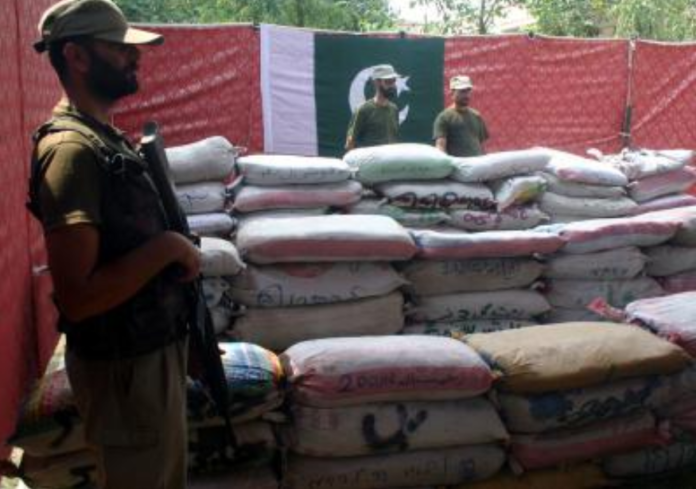Islamabad— Pakistan is losing an estimated Rs 3.4 trillion annually due to illicit trade, with nearly 30% of the loss attributed to misuse of the Afghan Transit Trade facility, according to a new report released by the Policy Research Institute of Market Economy (PRIME) and the Transnational Alliance to Combat Illicit Trade (TRACIT).
Titled Pakistan’s Battle Against Illicit Trade: An Analysis of Challenges and Pathways to Resilience, the report highlights the scale and economic impact of illegal trade activities across five major sectors—tobacco, pharmaceuticals, tyres and lubricants, petroleum and diesel, and tea. These sectors alone account for over Rs 751 billion in lost revenues each year.
Breaking down the figures, the report notes:
- Tobacco: Rs 300 billion
- Petroleum and diesel: Rs 270 billion
- Tyres and lubricants: Rs 106 billion
- Pharmaceuticals: Rs 60–65 billion
- Tea: Rs 10 billion
Pakistan ranks 101st out of 158 countries in the Illicit Trade Index, with a composite score of 44.5, falling below the global average of 49.9.
The report underscores that the annual revenue loss represents 26% of Pakistan’s current fiscal year tax target and stems largely from the country’s vast informal economy, estimated at $123 billion.
Illicit trade, the report warns, poses a “serious challenge” to the formal economy by undermining legitimate businesses, threatening consumer safety, and draining government revenues. “From smuggled petroleum and counterfeit pharmaceuticals to untaxed cigarettes and under-invoiced goods, illicit trade has entrenched itself across key sectors,” the report stated.
A significant contributor to this challenge is the exploitation of the Afghanistan-Pakistan Transit Trade Agreement, which alone is responsible for an estimated Rs 1 trillion in annual losses. The report cites poor customs infrastructure, porous borders, outdated scanning technology, and limited inter-agency coordination as key enablers of illicit goods movement.
The findings call for urgent policy reform, modernisation of border security and customs processes, and stronger enforcement mechanisms to curb the multi-trillion-rupee losses caused by illegal trade. (Source: IANS)







